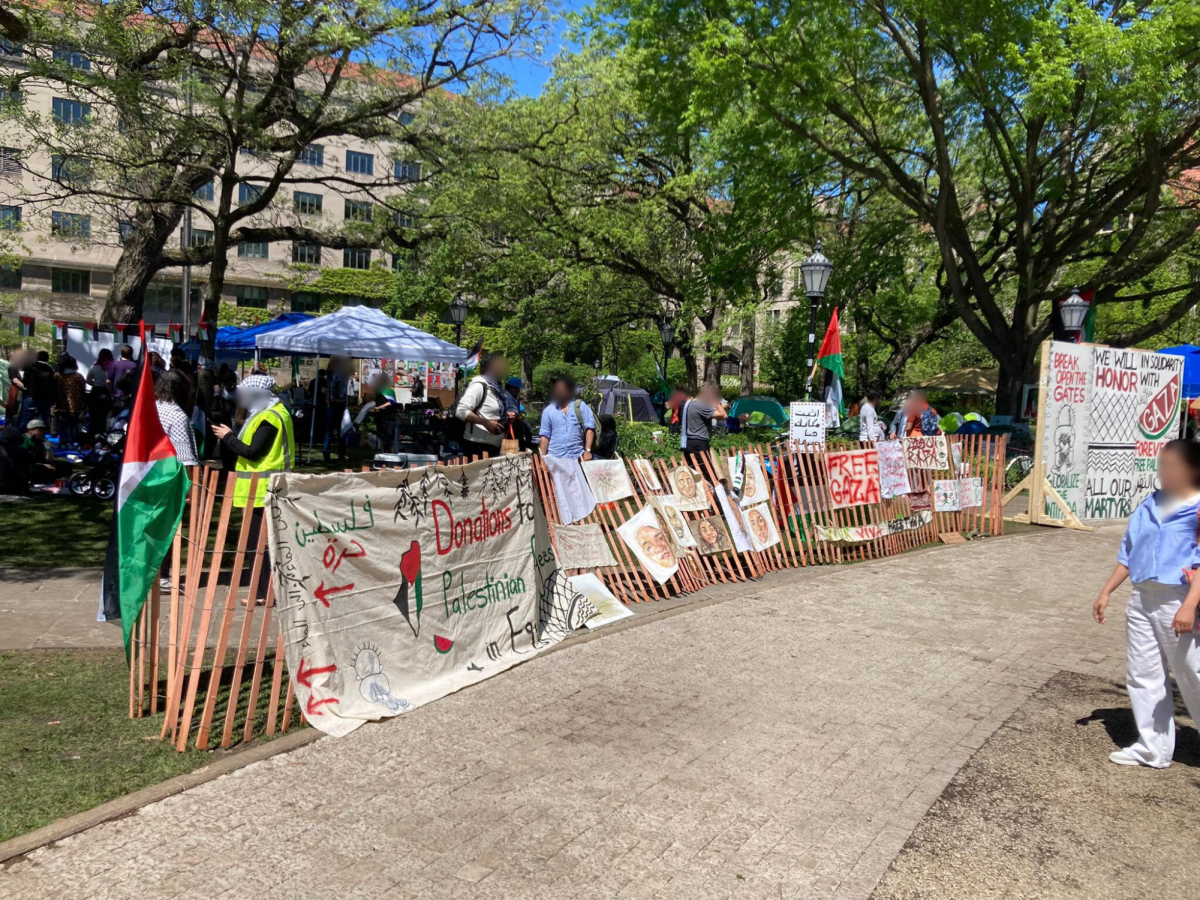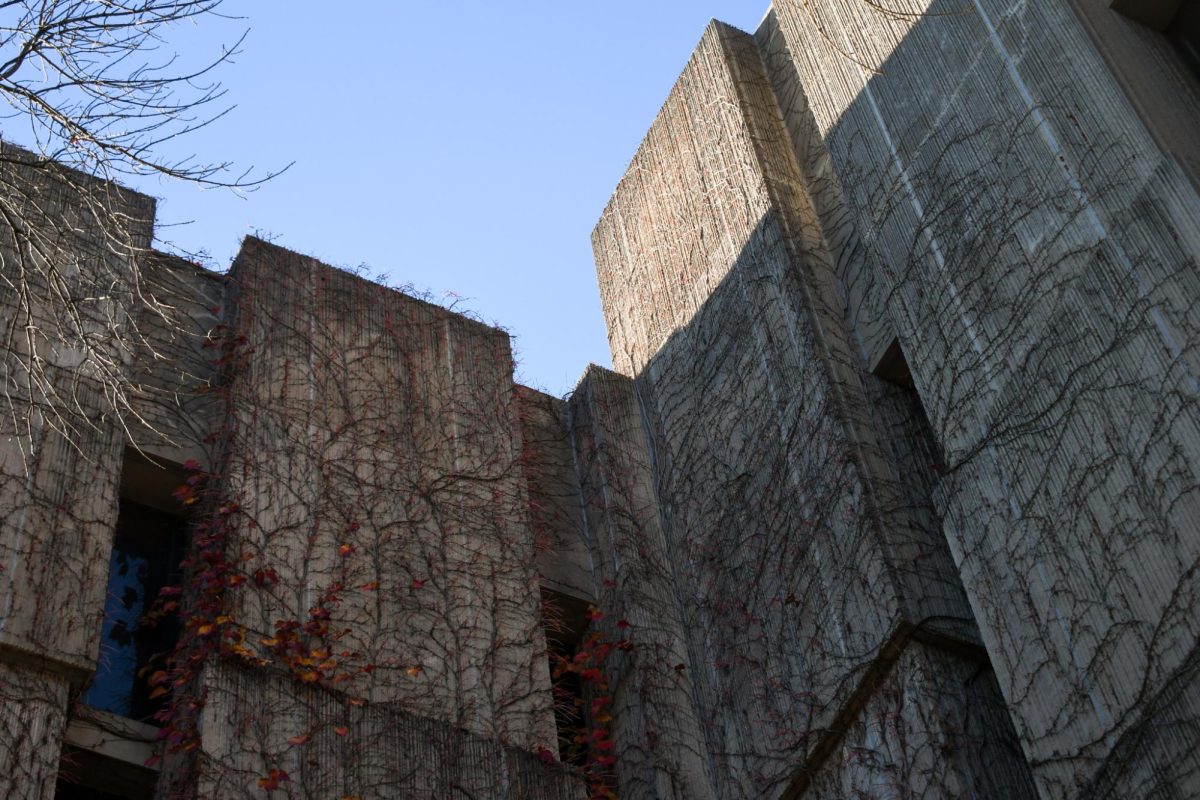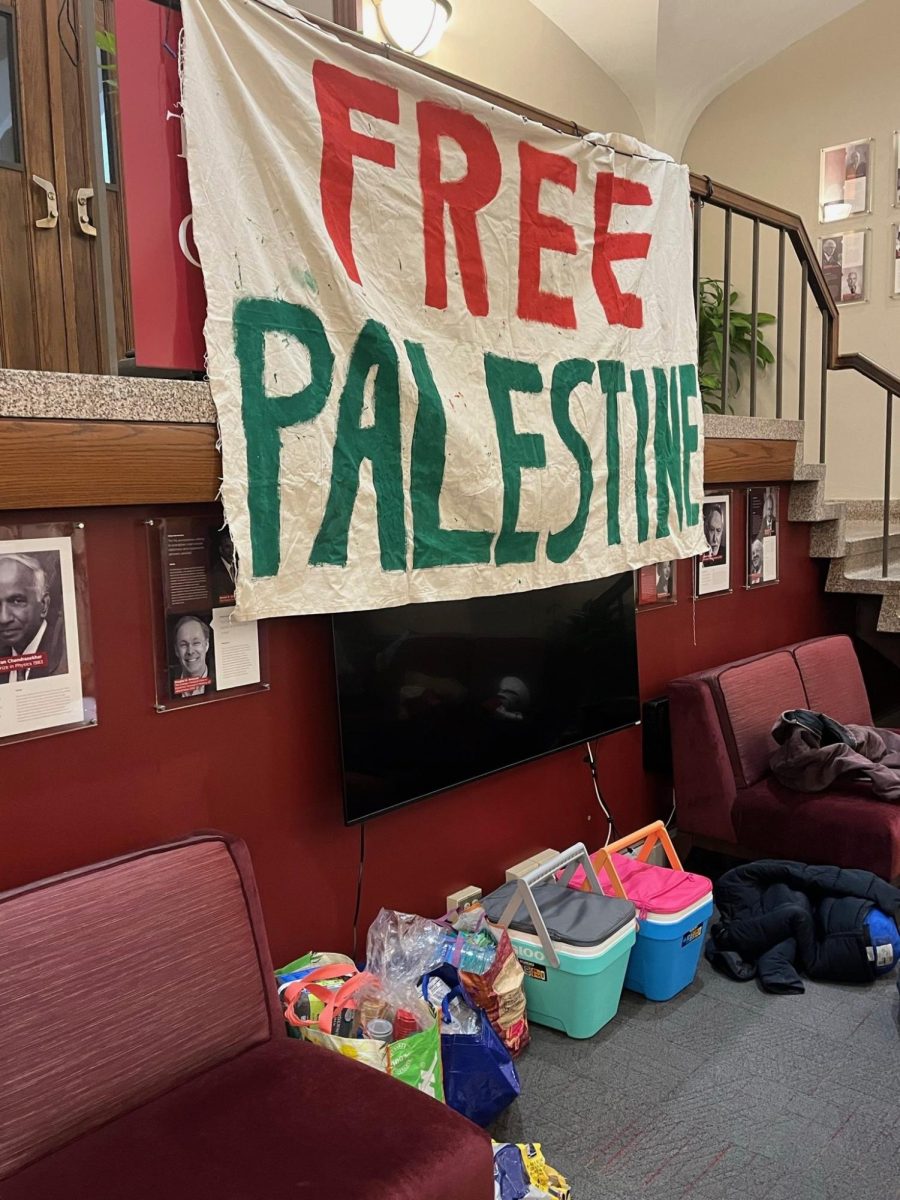Last week, the University of Chicago French Club hosted an unprecedented discussion on freedom of expression called “Who is Charlie?” featuring Charlie Hebdo journalist Zineb El Rhazoui. As its organizers, we were thrilled to note the overwhelming interest in the event, and the many conversations on free speech, France, secularism, and Islam prompted by El Rhazoui’s remarks. However, we must take issue with the narrative of the discussion as recounted by Xin Tian Yong in her opinion piece, “Actions speak louder than words,” which includes discrepancies with the actual events that took place, as well as a disconcerting conception of free speech.
We reject the notion that the event failed to provide a safe space for any attendee to participate in the conversation, and somehow created uneven grounds for debate by inviting a speaker “in a relative position of power.” El Rhazoui is an immigrant, a woman, Arab, a human rights activist who has known exile, and a journalist living in very real fear of death. She was invited to speak precisely because her right to do so is, quite literally, under threat.
Furthermore, around 50 minutes of a 90-minute event were dedicated to open, unfiltered Q&A from the audience, and El Rhazoui answered every question she was asked, including ones from student Aseal Tineh, who strongly criticized Charlie Hebdo. In fact, our decision to let the event run 10 minutes long allowed Tineh to ask a follow-up. What, then, constitutes a safe space? Putting aside the canine sweeps, UCPD officers, and bag prohibition that made this event the most secure any current student has probably ever attended on this campus, we ask: What more can event organizers do to ensure a “safe space” for productive conversation for all? If “safe space” means a demand to narrow our choice of speakers or restrict the diversity of views we bring to this campus because they risk making some of us uncomfortable, we politely decline.
When Yong describes El Rhazoui as “dismissive” or “not appear[ing] concerned about ensuring that others felt safe enough to express dissenting opinions,” she is misrepresenting what actually happened. In fact, El Rhazoui simply disagreed with the challenge made to her argument. Disagreement does not mean restricting others’ freedom of speech or shutting down debate, quite the contrary.
Inspiring profound debate and thought is the raison d’être of the French Club’s speaker series and of the University as a whole. With this goal comes the reality that we will all, at some point, face discomfort when our tightly held views are questioned. Equating that feeling of discomfort with a threat to free speech sets a dangerous precedent and brings into question the very legitimacy of talks such as El Rhazoui’s. While we invite disagreement over the speaker’s views, we wish Yong had devoted more thought in her editorial to engage with them as they were expressed, and we firmly stand by our decision to invite El Rhazoui to campus to speak.
To make the fallacious argument that was critiqued above, Yong resorts to numerous false statements and ideas wrongly attributed to El Rhazoui, which is perfectly clear from the video of El Rhazoui’s talk, which is now available on YouTube. For example, Yong writes that during El Rhazoui’s exchange with Tineh during the Q&A session, El Rhazoui was “…insinuating that Tineh did not have the ‘balls to die for [her] ideas.’” Instead, what El Rhazoui said was, “Today, being Charlie Hebdo means to die for a drawing, because of its own ideas, and because of a certain idea of freedom. And not everyone, excuse me, has the balls to die for his ideas.” El Rhazoui was not addressing Tineh’s own attitude at all.
Furthermore, Yong writes, “Muslims are not a homogenous social unit with a singular worldview, as El Rhazoui seems to suggest.” In fact, El Rhazoui said the exact opposite, referencing the difficulty of defining a “Muslim community” because “…it is not a community where people are all the same.” Yong then declares, “no Muslim should have to apologize for another Muslim’s action.” El Rhazoui never once promoted this idea throughout the talk.
In her piece, Yong deplores that “…most of the audience appeared to endorse El Rhazoui’s conception of free speech by giving her a standing ovation when the event ended.” This leads us to the question of why exactly the audience gave El Rhazoui a rare standing ovation. El Rhazoui narrowly escaped a terrorist attack on January 7 that resulted in the deaths of 12 of her colleagues. A week prior to our event, El Rhazoui became the target of thousands of death threats disseminated by ISIS supporters via Twitter, announcing an obligation to kill El Rhazoui, detailing the best methods to kill her, and publishing her and her family’s addresses. As a result, El Rhazoui now lives with six bodyguards, and needs to give two hours’ notice if she wants to leave her apartment to buy bread. To choose to travel to Chicago and speak publicly required a tremendous amount of courage on her part. It was this display of bravery that prompted a standing ovation at the conclusion of her talk, and it is this bravery that deserves applause, regardless of whether or not we agree with what El Rhazoui says.
In the 2014 report by the University’s committee on free expression, Professor Geoffrey Stone quoted former University President Hanna Holborn Gray as saying, “education should not be intended to make people comfortable, it is meant to make them think. Universities should be expected to provide the conditions within which hard thought, and therefore strong disagreement, independent judgment, and the questioning of stubborn assumptions, can flourish in an environment of the greatest freedom.”
In bringing Zineb El Rhazoui to campus, the University of Chicago upheld its values of free speech, and the University of Chicago French Club will proudly continue to be part of this essential tradition.
—Eve Zuckerman and Alexandra McInnis, president and vice president of the University of Chicago French Club






